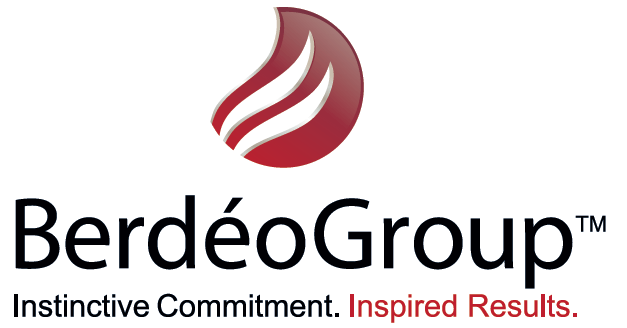“I can’t ask her. She’ll think I have ulterior motives,” was the narrative looping through her head.
Our client was a candidate to move from Executive Vice President to CEO of a publicly traded company. Luckily for her, she had a friend on the nominating committee. Yet unfortunately, she didn’t realize that there were ways to capitalize on this relationship while preserving her integrity and morals.
Before we had a chance to consult with one another about it, she felt she would appear opportunistic. She feared judgement and “peacocking” her traits as the perfect fit for CEO.
Ultimately, she overcame her fear and was comfortable with contacting her friend, who happily accepted the invitation to speak. The narrative looping through our client’s head was self-limiting. Spoiler alert: she is now CEO of the company! Sometimes all it takes is one simple request.
While it may seem surprising a leader of her stature with formidable successes to speak of was afraid to put herself out there, venturing into the unknown is a fear so many of us share. And research reveals people who don’t self-promote will likely fall behind their more vocal peers. Unfulfilled professionals with this mindset are often faced with two options: exit to a path that fulfills them through their passions or begin to claim and advertise their worth to launch themselves toward super-leadership roles. Luckily, our client chose the latter.
These undesirable tendencies are often traced to how we raise children. Individuals who were rewarded for being obedient, people-pleasing, accommodating, and free of physical and emotional blemishes often struggle with the idea of being disliked and failing, both of which are necessary to succeed at a high level. If any of this resonates with you, you know that simply “finding your confidence” is not the answer. Rather, you must understand the organic origins of and unravel the beliefs you have held, much subconscious, about your place in society and its behavioral customs.
Here are some guiding principles that reverse this conditioning:
- Let go of what others think of you. If you want to be a leader, this mindset is essential. And to many professionals, accepting the idea of being disliked or making enemies is unbearable. I understand that, but it is a fear our clients have also overcome. One way to free yourself is not to take things so personally. Don Miguel Ruiz sums it up nicely in his book The Four Agreements. “Whatever happens around you, don’t take it personally…Nothing other people do is because of you. It is because of themselves.” If you are acting in accordance with your authentic values, realize what other people think only undermines your values. And if others do judge you for being courageous, it most likely is a projection of their own lack of courage to speak up for themselves. When we judge others, we often project our negative beliefs about ourselves. The next time you are afraid to ask for help or to speak up in a meeting choose to be courageous in those moments. Be authentic. Who knows? Doing so may inspire a colleague to do the same by example—that is true leadership. Go this path, and I promise you will end up where you want—and are meant—to be.
- Own your value. How you value yourself and what you have to offer impacts all areas of life. Never accept less than what the often-muted voice of truth in your head knows you deserve. This crystallizes when being real and putting to writing the ways you offer unique value. Another client was recently offered a promotion with no pay raise. Their self-limiting belief was “I do get paid very well.” After a bit of reframing, they wrote down all the contributions they personally made to the company, and it became immediately evident they deserved to be compensated for their worth. The arguments for higher compensation were staring them, and their employer, in the face. Owning their worth led to a 24 percent pay raise! When I asked how they felt, they said, “Feels fantastic to be equal! What did I gain? Respect. Equality. Equal compensation. Market value.” Create a living document listing all your achievements, your personal and professional creation of values—whatever will clarify your worth for you and your employer. So, the next time those limiting beliefs arise, you will have something tangible to remind you how incredible you are and readily scripted argument for value/compensation-based discussion.
- From self-awareness to rewiring your brain: Now that you know your beliefs and behaviors are programmed, you can unlearn them by forming new neural pathways and rewire your brain. Dr. Andrew Huberman, a neuroscientist and tenured Professor in the Department of Neurobiology at the Stanford University School of Medicine, recommends a simple practice to change your behaviors and mindset over time—celebrate little wins along the way! Even if it is just for moments or through simple gratitude, you are programming your brain to reward your new behavior. Then when you reach a big goal (your promotion or raise!), it must be rewarded in a major way. And if you do that, it’s more likely you will feel gratitude, prove to yourself what is possible, and hunger for more.
The most important thing you can do is to make courageous choices, despite what traditional conditioning may tell you. The more you hold this intention over time, the more comfortable you will feel asking for help, taking risks, and saying yes only to the things that truly add value—and play to your strengths. The most effective leaders embrace traits of decisiveness, courage, empathy, vulnerability, humility, and confidence. Our clients have shown us it is not only possible to develop these traits but to balance them into a personalized formula for goal achievement.
We are deeply committed to—and have repeatedly—helped individuals make permanent changes that empower them to bring their best selves forward as the most effective leaders possible.
Sign up here to receive articles and updates from Laura Berger.





